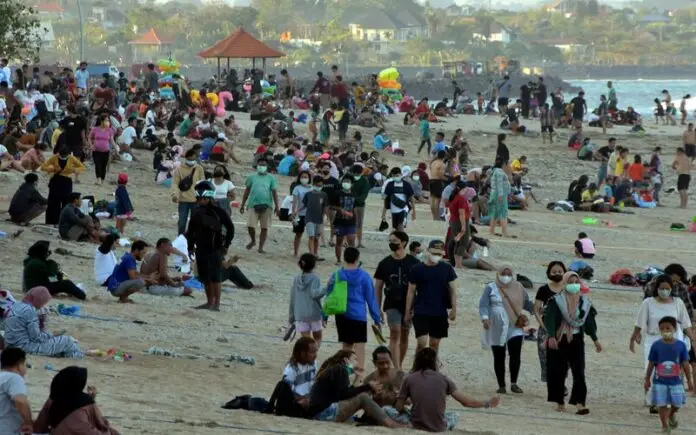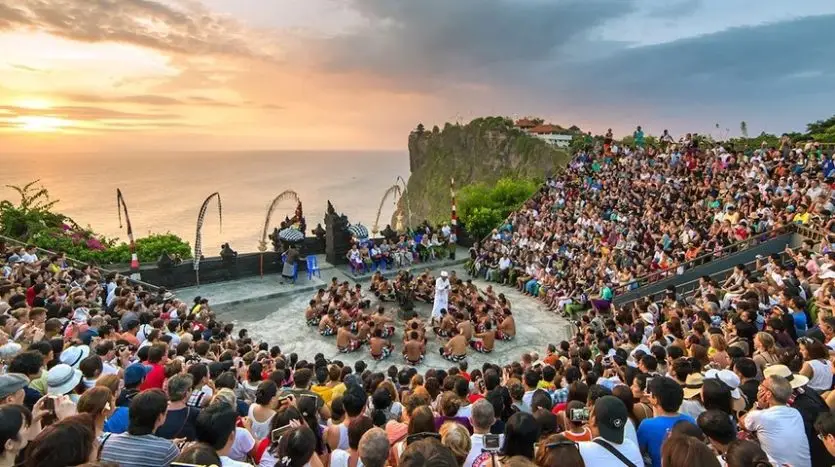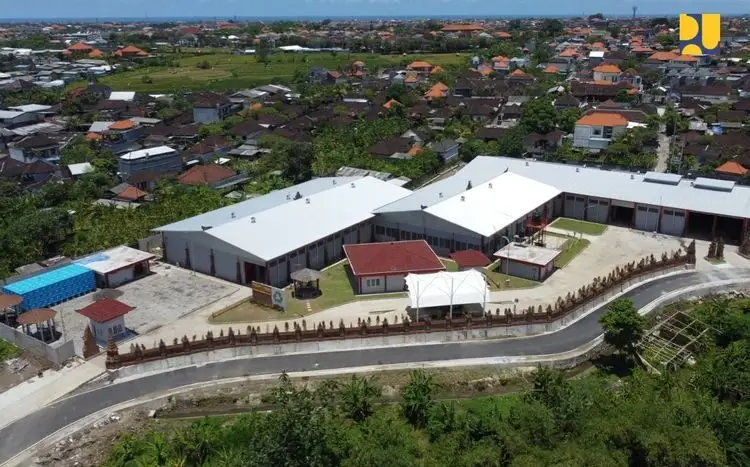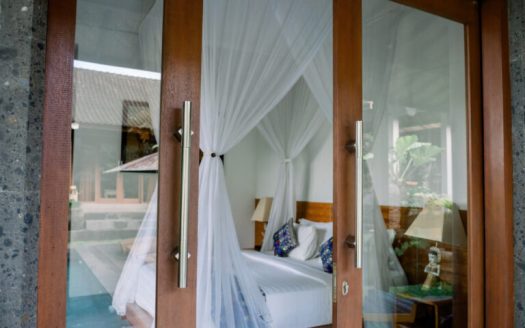Bali Moratorium Support Grows
The State News Agency Antara quotes the interim Governor of Bali, Sang Made Mahendra Jaya, saying that a recommendation from the Central Government to impose a moratorium on the construction of new tourist accommodation in South Bali could be imposed for 1-2 years.
If implemented, the moratorium would apply in Denpasar, the capital, and the regencies of Badung, Gianyar, and Tabanan (Sabargita).
Mahendra Jaya added: “The provincial administration of Bali has made a recommendation to the Coordinating Minister of Maritime Affairs and Investment (Luhut Binsar Pandjaitan) that the proposed moratorium is for 1-2 years on the new building of hotels, villas, discotheques., and beach clubs.”
Before a meeting of Bali’s Young Entrepreneurs Association (HIMPI-Bali), the serving Governor defended the proposed moratorium as needed to preserve and promote quality tourism.
Overbuilding of hotels and other accommodations is not the sole matter at stake in the current controversy. Also of concern is the widespread conversion of agricultural lands and rice fields into commercial sites for hotel and villa accommodation using the Online Single Submission (OSS) system, which is criticized for often bypassing local government.
Officials admit they are surprised to see videos on Tiktok showing how developers demolished an ancient cliff face in South Bali with heavy earthmoving equipment. The officials insist they received no warning on that project or news of other plans to open large nightclubs in the Regency of Tabanan and Denpasar.

The Governor commented further: “We see the huge-scale conversion of land use, the unregulated sale of liquor from small street-side businesses, and foreigners, who should limit their alcohol purchases to restaurants and hotels, buying cheap booze from small traders and then getting drunk and acting up.”
The Provincial Government of Bali hopes the Coordinating Minister for Maritime Affairs and Investment, Luhut Binsar Pandjaitan, will convene a limited meeting with Provincial Leaders in Bali and issue new regulations as Presidential Decrees.
“Hopefully, after the coordination meeting, presidential instructions will be issued regarding the moratorium on the construction of hotels, villas, discos, and beach clubs, as well as addressing land conversion in the Sarbagita area for the coming 1-2 years,” said the acting Governor.
Sang Made foresees the central government responding positively to the proposal for a moratorium on the construction of tourism accommodation because of the many problems that have occurred and gone viral on social media.
In addition to development matters, loosely regulated building permits allow foreign nationals to take local jobs. The government wants to largely revamp Bali’s tourism policies over the coming two years,
Bali’s Mountains of Trash
Bali’s capital city, Denpasar, continues to struggle to find an effective and coordinated way to handle the many tons of trash the Island generates daily. Denpasar has built three modern Waste Disposal Plants (TPST) that are far behind their scheduled opening dates and running at reduced capacity.
The TPST, located in the East Denpasar suburb of Kesiman Kertalanggu, has been the focus of strong protests from surrounding communities for emitting noxious odors. Residents have erected billboards protesting the plant and demanding the government take urgent corrective actions.
As reported by RadarBali.com, Professor IGB Wijaya Kusuma, an academic from the Udayana University Technical Faculty, has surveyed the TPST facility in Kertalanggu that President Widodo formally inaugurated in March 2023.
During the inspection survey, Professor Wijaya determined that the TPST Facility did not meet acknowledged hygiene standards due to poor internal ventilation and the uncontrolled expulsion of unpleasant odors into the surrounding community.
To remedy the situation, Professor Wijaya recommends that the Kesiman Kertalanggu TPST’s roof be equipped with an exhaust blower to ventilate into the air outside the building. The Professor continued: “Then, the contaminated air must run through a purifying device to eliminate the pungent odors. After passing through the purifying device, the air quality will be brought up to an international standard, allowing release into the atmosphere.”
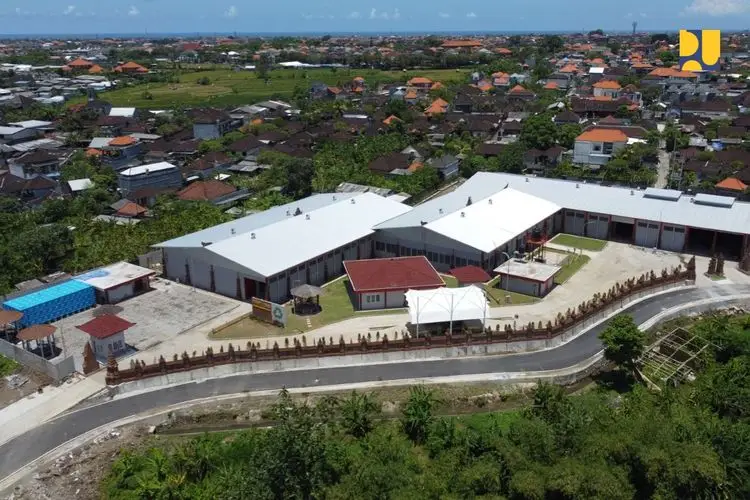
Technically, the drying process at the Kesiman Kertalangu TPST uses a rotary dryer that requires some 2 hours to achieve a water moisture content of 40 percent and 4 hours to achieve a water content of 10 percent.
Based on data from Professor Wijaya, one rotary dryer configured to reduce moisture to 40 percent can only dry 9 tons per cycle. When operating for 18 hours in a single 24-hour period, 81 tons of wet garbage can be processed daily. “Meanwhile, for 10 percent water content, the machinery can only dry 9 tons times four cycles per day (36 tons),” said the Professor.
Thus, the two rotary dryers at the Kesiman Kertalangu TPST can only dry 120 tons per day against a contracted target of 450 tons. To meet these targets, the necessary space and equipment need to be expanded four.
Professor Wijaya blames the foul odor coming from TPST Kesiman Kertalanggu on the under-capacity of drying machines and the resulting accumulation of unprocessed waste beyond the 120 tons now being handled each day.
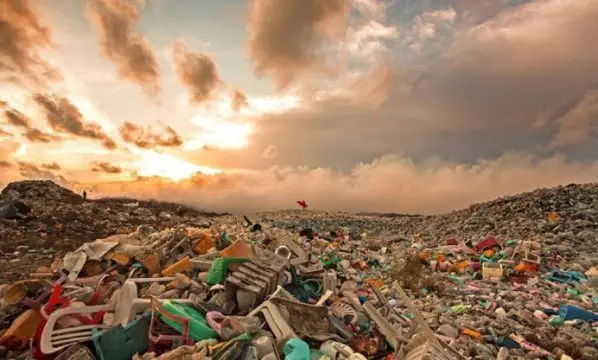
In other words, the TPST Kesiman Kertalanggu operates at 25% of the capacity needed to process the 450 tons of trash that comes in daily.
When recently interviewed with the Acting Governor of Bali, Sang Made Mahendra Jaya, Professor Wijaya stated that to eradicate the mountains of garbage at the Suwung TPA, the Bali Provincial Government (Pemprov) has appointed the regional company SBDJ (Sarana Bali Dwipa Jaya) to work together with investors to solve the growing garbage problem in Bali with Wise Energy. The plan is to build a waste-powered electricity plant and an incinerator.
The Acting Governor‘s ambition is to create technology to solve garbage with the same efficiency as Singapore.
Looking for a beautiful piece of land in North Bali?

